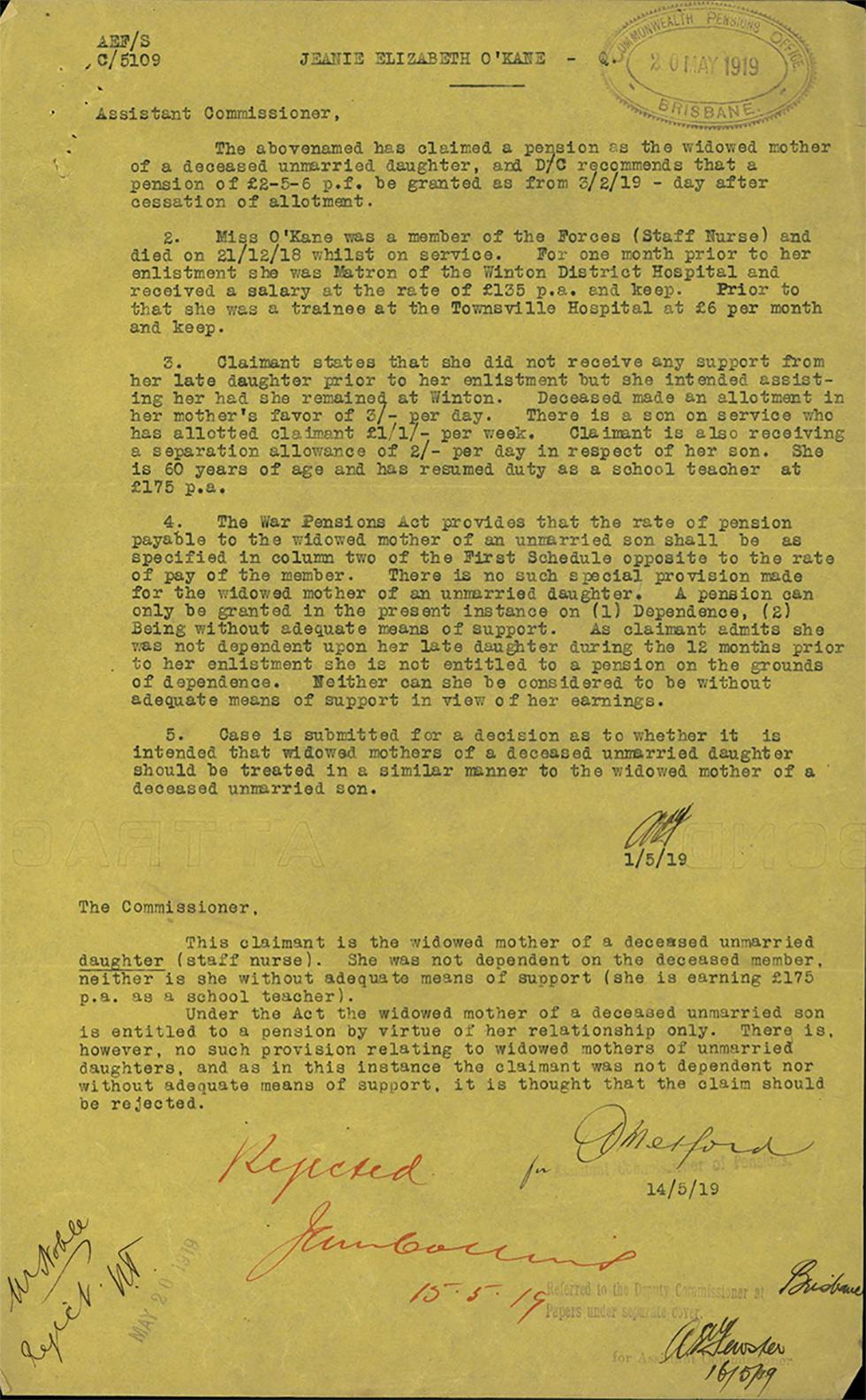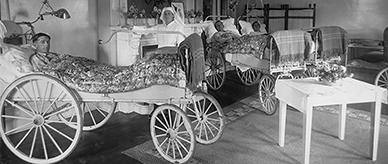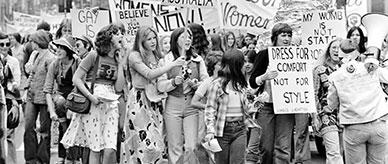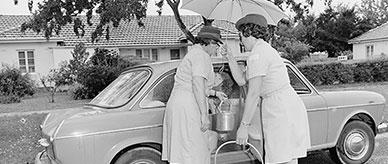


Transcript
AEF/S
C/5109
[Stamp of the Commonwealth Pensions Office in Brisbane, dated 20 May 1919, in the top right-hand corner of the document]
[Capitalised] JEANIE ELIZABETH O’KANE – Q.
[Line break]
Assistant Commissioner,
The abovenamed has claimed a pension as the widowed mother of a deceased unmarried daughter, and D/C [Deputy Commissioner] recommends that a pension of £2-5-6 p.f. [penny farthing] be granted as from 3/2/19 – day after cessation of allotment.
2. Miss O’Kane was a member of the Forces (Staff Nurse) and died on 21/12/18 whilst on service. For one month prior to her enlistment she was Matron of the Winton District Hospital and received a salary at the rate of £135 p.a. [per annum] and keep. Prior to that she was a trainee at the Townsville Hospital at £6 per month and keep.
3. Claimant states that she did not receive any support from her late daughter prior to her enlistment but she intended assisting her had she remained at Winton. Deceased made an allotment in her mother’s favor [sic] of 3/ - per day. There is a son on service who has allotted claimant £1/1/ - per week. Claimant is also receiving a separation allowance of 2/ - per day in respect of her son. She is 60 years of age and has resumed duty as a school teacher at £175 p.a.
4. The War Pensions Act provides that the rate of pension payable to the widowed mother of an unmarried son shall be as specified in column two of the First Schedule opposite to the rate of pay of the member. There is no such special provision made for the widowed mother of an unmarried daughter. A pension can only be granted in the present instance on (1) Dependence, (2) Being without adequate means of support. As claimant admits she was not dependent upon her late daughter during the 12 months prior to her enlistment she is not entitled to a pension on the grounds of dependence. Neither can she be considered to be without adequate means of support in view of her earnings.
5. Case is submitted for a decision as to whether it is intended that widowed mothers of a deceased unmarried daughter should be treated in a similar manner to the widowed mother of a deceased unmarried son.
[Handwritten signature]
1/5/19
The Commissioner,
This claimant is the widowed mother of a deceased unmarried daughter [underlined] (staff nurse). She was not dependent on the deceased member, neither is she without adequate means of support (she is earning £175 p.a. as a school teacher).
Under the Act the widowed mother of a deceased unmarried son is entitled to a pension by virtue of her relationship only. There is, however, no provision relating to the widowed mothers of unmarried daughters, and as in this instance the claimant was not dependent nor without adequate means of support, it is thought that the claim should be rejected.
[Handwritten signature]
[Handwritten] In [end handwritten] Assistant Commissioner of Pensions
14/5/19
[Handwritten inscription in red ink] Rejected [signature] 15.5.19 [end handwritten]
Referred to the Deputy Commissioner at [handwritten] Brisbane [end handwritten]
Papers under separate cover.
[Handwritten signature]
for Assistant Commissioner
[Handwritten] 16/5/19 [end handwritten]
[Handwritten inscription in black ink] W Noble Reject [signature] [end handwritten]
MAY 20, 1919
About this record
This record is a brief for the Assistant Commissioner of the Commonwealth Pensions Office. It refers to widow Jeanie O'Kane's application for a war pension after the death of her daughter, Nurse Rosa O'Kane, from the Spanish flu. This one-page extract is from the First World War repatriation file of Jeanie Elizabeth O’Kane, beneficiary of Rosa O’Kane.
It was uncommon for the families of women to apply for a war pension, because women at the time were not generally considered to be part of the workforce and were not viewed as family ‘providers’. Servicemen also made up the overwhelming majority of war deaths, with 60,000 losing their lives. 25 Australian nurses (of 3000 who served) were killed in the First World War (WW1).
Educational value
- Between 1918 and 1920, pneumonic influenza, commonly known as the Spanish flu, plagued society. This pandemic caused more deaths than World War I.
- Sister Rosa O’Kane was bound for Europe on the SS Wyreema to serve as part of the Australian Army Nursing Service when the war ended. Following her ship’s return to Australia, she volunteered to tend to those suffering from pneumonic influenza (the Spanish Flu) on the quarantined transport ship SS Boonah.
- The ship was full of service personnel returning to Australia. To prevent the spread of the Spanish Flu, those onboard were unable to disembark and reunite with family for some time. Those sick with the flu were transferred to the Quarantine Station at Woodman Point, Western Australia. During her service at this post Rosa succumbed to the flu herself and died on 21 December 1918.
- Jeanie O’Kane, Rosa’s widowed mother, applied to the Repatriation Department for a pension after the death of her only daughter. At the time it was common for a widow to receive a war pension if an unmarried son was killed during the war and the mother could show that she was a dependent.
- A decision needed to be made whether a widowed mother of a deceased and unmarried daughter should receive the same benefits. Advice was received from the Repatriation Department stating ‘as members of the Army Nursing Service are soldiers within the meaning of the Repatriation Act an application…may be accepted from Mrs. O’Kane’.
- Jeanie’s application was originally rejected on the grounds that she ‘was not dependant’ on her late daughter and had resumed work as a teacher. However, after she proved she had depended on Rosa during the 12 months before her enlistment, Jeanie’s claim was reassessed and she was granted a pension of two pounds per fortnight.
Related themes
Need help with your research?
Learn how to interpret primary sources, use our collection and more.



